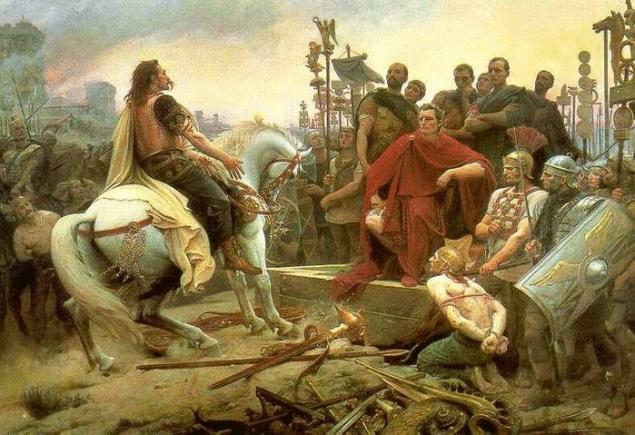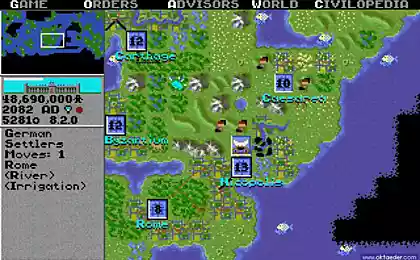513
The history of the war of Caesar and the Celts in the computer model
Archaeologist Tom Whitley with the help of modern methods will check the information of Caesar's about the war, marked the beginning of the conquest of Gaul.
A group of researchers is using computer modeling to validate the message of Julius Caesar on his war with the helvetians, a Celtic tribe who inhabited the North-Western part of modern Switzerland.
According to the report of Caesar, more than 250 thousands of the helvetians were living on the Swiss plateau before they decided to leave this territory and invade Gaul in 58 BC In "Notes on the Gallic war" says that the helvetians left the plateau, "that they were too closely on their land". The population on the plateau was so large that he did not have enough food.
Tom Wheatley (Tom Whitley), an archaeologist from the University of Western Australia working on a geographic information system (GIS) to assess how accurate were the details of Caesar on the number of helvetians. He also uses geophysical methods to find the traces of migrations and war.

GIS is working archaeologist, simulates the economic system of the Swiss plateau. With its help, he hopes to assess the agricultural potential of the region. The model will allow us to estimate the amount of food that was available on the territory of the helvetians.
Whether the helvetians lacked food? Or Caesar deliberately exaggerates the number of the tribe to victory over the helvetians looked more impressive? Tom Wheatley believes that the GIS will answer this question.
The computer model can also indicate the most likely places where might is Roman fortifications. In the future, the archaeologist expects to test these instructions on the ground. The study, therefore, also will test the effectiveness of new methods of archaeology: georadar exploration, magnetometry and aerophotogrammetry.
In 58 BC, the helvetians, who tried to pass through the Roman province, were defeated by Caesar. They became federates – dependent on Rome's "allies". Later, the helvetians were completely subordinated to the Romans. The clash with the helvetians began the conquest of Gaul.
Source: nkj.ru
A group of researchers is using computer modeling to validate the message of Julius Caesar on his war with the helvetians, a Celtic tribe who inhabited the North-Western part of modern Switzerland.
According to the report of Caesar, more than 250 thousands of the helvetians were living on the Swiss plateau before they decided to leave this territory and invade Gaul in 58 BC In "Notes on the Gallic war" says that the helvetians left the plateau, "that they were too closely on their land". The population on the plateau was so large that he did not have enough food.
Tom Wheatley (Tom Whitley), an archaeologist from the University of Western Australia working on a geographic information system (GIS) to assess how accurate were the details of Caesar on the number of helvetians. He also uses geophysical methods to find the traces of migrations and war.

GIS is working archaeologist, simulates the economic system of the Swiss plateau. With its help, he hopes to assess the agricultural potential of the region. The model will allow us to estimate the amount of food that was available on the territory of the helvetians.
Whether the helvetians lacked food? Or Caesar deliberately exaggerates the number of the tribe to victory over the helvetians looked more impressive? Tom Wheatley believes that the GIS will answer this question.
The computer model can also indicate the most likely places where might is Roman fortifications. In the future, the archaeologist expects to test these instructions on the ground. The study, therefore, also will test the effectiveness of new methods of archaeology: georadar exploration, magnetometry and aerophotogrammetry.
In 58 BC, the helvetians, who tried to pass through the Roman province, were defeated by Caesar. They became federates – dependent on Rome's "allies". Later, the helvetians were completely subordinated to the Romans. The clash with the helvetians began the conquest of Gaul.
Source: nkj.ru























